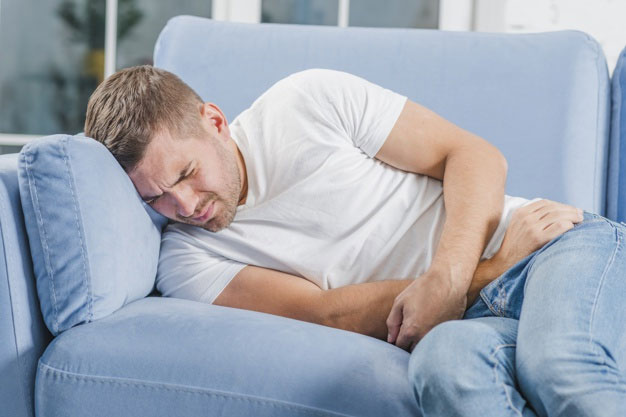Why eat a lot of vegetables still constipation?
Many people think that eating a lot of vegetables will cure constipation, but the truth is not entirely so.
The causes of constipation
Little exercise

People who exercise often do not experience constipation. The colon basically responds when the body moves, stimulating regular bowel movements. The abdominal and diaphragm muscles also play an important role in defecation. If these muscles are weak, they will not be able to finish their job well. Usually, increasing physical exercise to improve constipation is often more effective in the elderly - people who tend to be less active than younger people.
Take opioids
Opioids are often used to relieve pain from trauma, after surgery or in the treatment of chronic diseases such as cancer but have the side effect of causing constipation. Other drugs such as antacid groups containing aluminum, antispasmodics, antidepressants, barbiturates, bismuth salts, iron supplements, diuretics, etc. all have side effects that cause constipation.
Irritable bowel syndrome (IBS)

IBS is a bowel disorder that does not cause ulceration in the intestine and is not accompanied by structural or biochemical disorders. People with IBS often experience intestinal peristaltic disorders, tension in bowel movements and abdominal discomfort. These are all causes of constipation. .
Changes in life or habit
Traveling can disrupt normal diet and daily routine. Aging reduces bowel activity and muscle tension. Pregnancy can cause women to experience constipation due to hormonal changes or enlarged uterus. Aging often affects regularity by reducing bowel movement and muscle tone. Pregnancy can cause women to become constipated due to hormonal changes and mechanical fetal compression reduces intestinal motility. Photo: Getty Images.
Do not go to the toilet when needed
If you're 'sad', go now. Repeated restraint will reduce the reflex you want to go outside, thereby accumulating stool causing constipation.
Not eating enough fiber and getting enough fluids in your diet

A diet too low in fiber and fluid or too high in fat can lead to constipation. Fiber absorbs water, making stool bigger, softer and more easily pushed out. Increasing the amount of fiber helps relieve constipation. However, for people with severe constipation, increasing dietary fiber makes their constipation worse, leading to flatulence and discomfort.
Other causes
Neurological disorders, spine trauma, stroke or multiple sclerosis; metabolic and endocrine disorders or chronic diseases like bowel cancer, appendicitis, diverticulitis are the causes of constipation. In addition, some systemic diseases such as scleroderma or obesity are potential agents. In addition, intestinal obstruction caused by scar tissue from surgery or a narrowing of the colon or rectum may also cause constipation.
- 6 signs that you have not eaten enough vegetables
- 4 warning signs that you eat too little vegetables
- The disease 'spawning' colon cancer is more common but subjective
- 10 foods available after Tet helps 'fly' worries of constipation
- New drug treatment of idiopathic chronic constipation
- When constipation becomes dangerous?
- Vegetable vermicelli: A variety of useful and precious vegetables of Vietnamese people are still wasted
- What to do when the baby is constipated?
- 5 familiar vegetables are precious medicinal items
- Fresh vegetables: How to use it for safety?
- How to use raw and cooked vegetables to be healthy 'superior'
- 10 types of vegetables that contribute to incurable treatment only
 'Fine laughs' - Scary and painful torture in ancient times
'Fine laughs' - Scary and painful torture in ancient times The sequence of numbers 142857 of the Egyptian pyramids is known as the strangest number in the world - Why?
The sequence of numbers 142857 of the Egyptian pyramids is known as the strangest number in the world - Why? History of the iron
History of the iron What is alum?
What is alum?